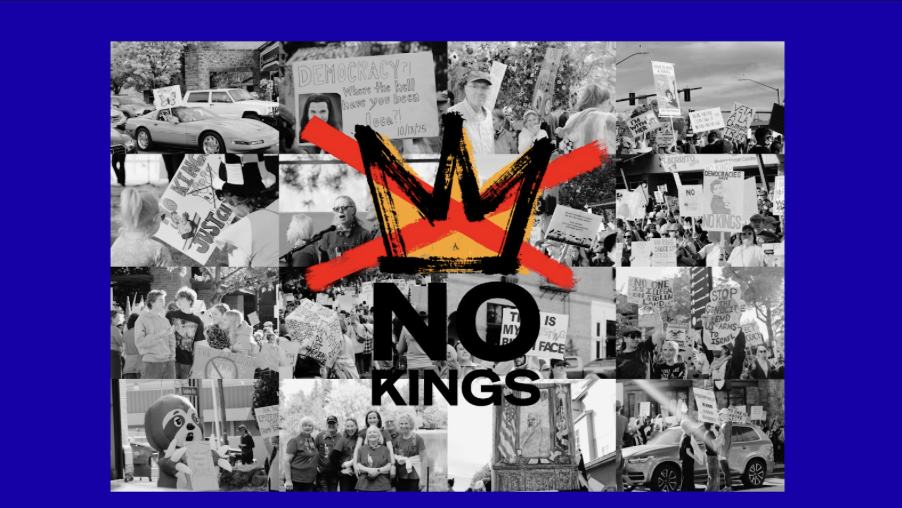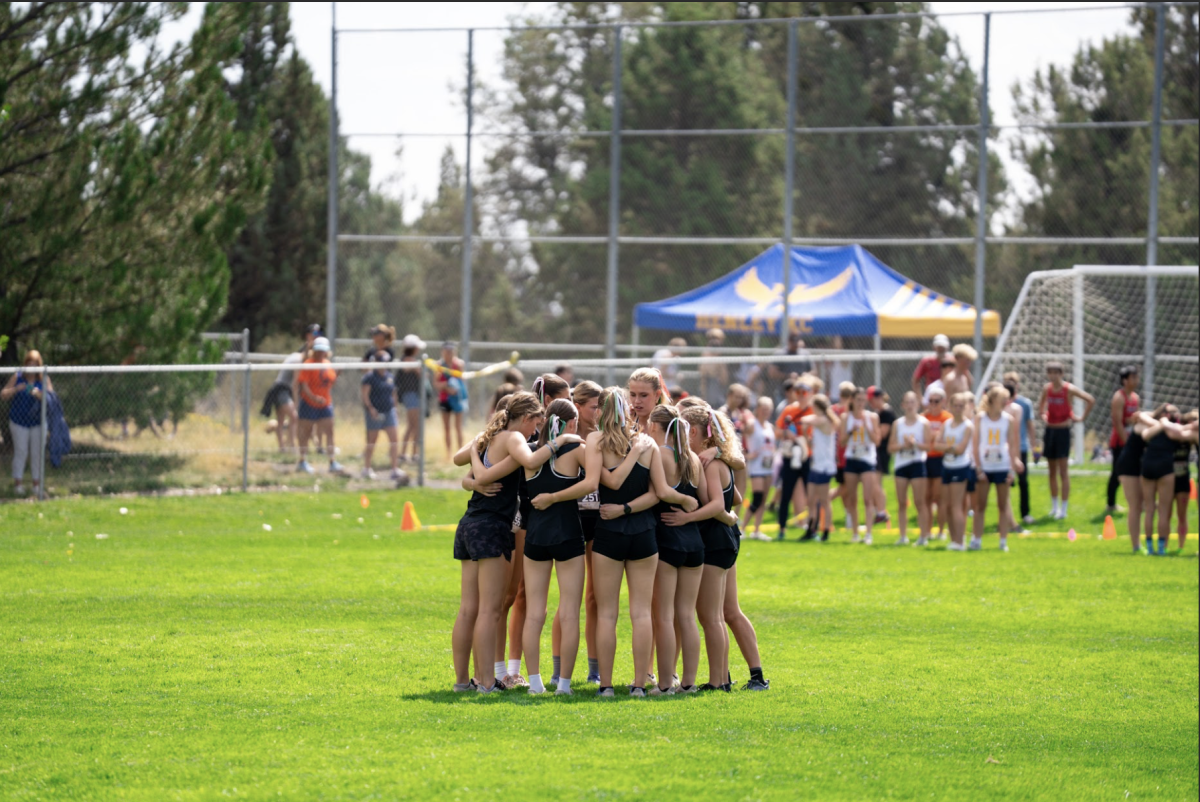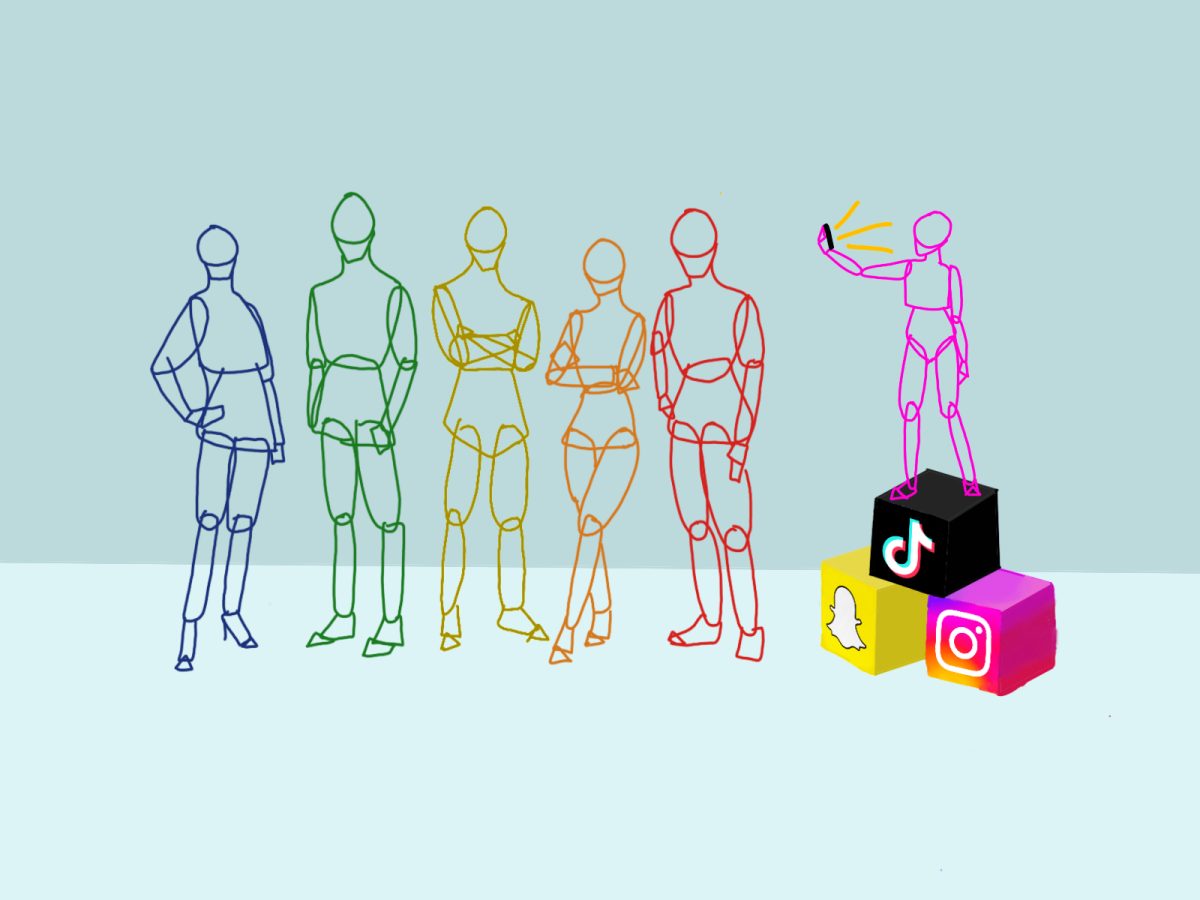Initially, I laughed at “Sephora kids.” I thought it was just another online fad that I might hear about through a friend of a friend. A simple overconsumption trend taking its turn in the great capitalist machine, quick to fame and quick to fall. So imagine my surprise when I walk into the brightly lit Sephora, a frequent favorite of the Old Mill, and find myself squeezing through packs of preteens just to snag a concealer. And they aren’t just there searching for the sparkliest eyeshadow or lipgloss like we were at that age. Their baskets are full of moisturizers and toners that cost more than two months of my allowance, yet are still small enough to make it through airport security.
It may seem a little ridiculous or even satirical, but this newest demographic has serious consumers and is full of girls looking for more than a little sparkle. The trendiest products, found all over these girl’s TikTok, are things like retinol, exfoliating acids and anti-aging serums. Things that are meant for people with sunspots and smile lines, not those who have yet to complete eighth grade.
There’s a clear connection between this new set of consumers and financial growth. Makeup brands like e.l.f. have seen a 530% increase in stock value in just two years (from July 2022 to July 2024), and Denise Shah, a professor of marketing at Georgia State University, is linking this to social media.
“If you look at [beauty companies’] marketing efforts, they’re all targeted toward that tween demographic,” said Shah in an interview with Mia Taylor of the BBC. Tweens have been increasing on social media since the pandemic, and are being recognized as a popular demographic, particularly for online marketing for “trendy” brands like Sephora and Ulta, or even the Stanley cup.
Much of the marketing comes not from the stores themselves, but from influencers across Instagram and TikTok. These influencers are mainly adults, but that doesn’t match user demographics. For example, on TikTok, one out of every four users is under 20, and the majority of social media users are female.
Kids who spend time online will see videos of full-grown adults talking about their lives and habits, and begin to emulate them, whether it’s filming “get ready with me” videos or shopping hauls. A 2024 article by PBS found that ⅓ of kids have “influencer” as a primary career path.
But our little brothers and sisters aren’t the only ones reshaping themselves to fit into social media’s mold. As much as we can scoff and look down on the little girls with fully stocked vanities, we’re just as guilty.
“You see something on social media and you’re like ‘I wanna be like that so that I’m popular or cool like that or mature,’” reflected Summit sophomore Leighton Allen. “I feel like that definitely [has] a big impact… we’re trying to change ourselves to fit the view of what we see other people doing.”
When your screen is filled with older, glamorous people, you can’t help but want to echo them and their lifestyles. In a world where little girls stand on their tiptoes to match their moms, social media is giving them stilettos.
“Social media is doing harm to our kids and I’m calling time on it,” declared Australian Prime Minister, Anthony Albanese in a November 2024 news conference. The country has already signed a bill into legislation that bans social media for anyone under 16.
Similar bills have been proposed in other countries in the past several years. This could help prevent social media from being something you grow up with. Especially since we’ve spent our childhood with it as a constant, many teens can’t picture their lives without it. The panic around the TikTok ban betrayed that. We may not be posting a dozen times a day before we hit puberty, but we’ve still let social media become ingrained in our everyday lives. And there are consequences to that.
“The social media giant Meta has been sued on allegations that using its platforms is associated with issues including childhood anxiety and depression,” writes Emily Dreyfuss, a New York Times technology writer and Harvard graduate. Tweens are already in a volatile stage of life, and the growing use of social media is only exacerbating their challenges.
This time is essential to the person you become, and as the first generation to grow up on screens, it’s due to have an impact.
“We’re definitely followers, not leaders,” said Allen.
Growing up is tough, and social media makes it tougher. Your childhood should be about learning and exploring and finding your place at your own pace, not rushing to keep up with the latest trends. So please, kick off your high heels, take off your makeup and let yourself be a kid. You’ve got your whole life to grow up.

































